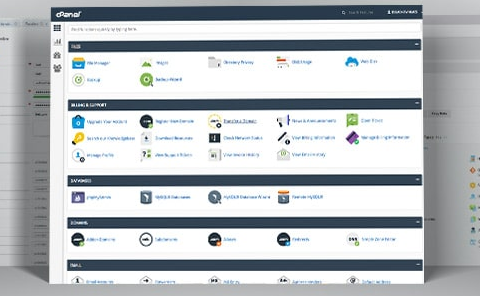Hey friends! Lately, I’ve been getting lots of questions asking how VPS and cloud hosting stack up against each other in the performance department. I know the whole virtualization infrastructure world can be dizzyingly complex!
Not to worry, I’m here to break it down in simple terms so you can make an informed decision about the best hosting for YOUR needs. We’ll dive into exactly how VPS and cloud platforms differ when it comes to critical performance metrics like speed, uptime, scalability, and more.
Let’s get to it!
VPS and Cloud Hosting Overview
Table of Contents
First, a quick refresher on what exactly VPS Hosting and cloud hosting are:
VPS or Virtual Private Servers provide isolated virtual machines running on top of physical host hardware. So the resources of the physical server are partitioned out to give each VPS customer their own virtual “slice”.
Cloud Hosting relies on virtualization too but takes it a step further. Cloud platforms utilize clusters of servers and on-demand provisioning to dynamically allocate resources as needed.
With the basics covered, now we can analyze how these architectures impact hosting performance…
Speed and Responsiveness
Website speed is a vital metric Google cares about. Slow sites get penalized in search rankings! Responsiveness also ensures positive user experiences in web apps. So which environment provides better performance?
VPS Speed Benefits
- Dedicated CPU cores reduce queueing behind other sites
- Allocated RAM ensures availability for active site processes
- Local NVMe storage delivers instant disk access speed
So in a VPS, no noisy neighbors bogging down the server! Resources dedicated to ONE site or app.
However, cloud platforms have advanced…
Cloud Speed Innovations
- CDNs cache site files closer to visitors for faster delivery
- Load balancers distribute traffic across optimal servers dynamically
- Auto-scaling rapidly provisions MORE power as needed to handle spikes
So it’s a close race! Clouds can seem “unlimited” in resources while VPS guarantees dedicated power.
The Verdict?
For consistency, VPS wins for reliable speed. But clouds handle scaling traffic spikes easier. Pick what meets your apps needs!
Uptime Reliability
Beyond speed, a hosting platform’s uptime is critical for always-on availability. Downtime is UNACCEPTABLE for mission-critical sites!
VPS Uptime Strength
- Fewer system layers means less points of failure
- Restarts don’t impact other sites or guests
- Rapid recovery from issues with hypervisor failover
Physical bare-metal servers have >99.9% uptime, and VPS gets close by limiting the virtualization overhead.
Cloud Uptime Resilience
- Distributed redundant infrastructure prevents outages
- Automated healing processes quickly replace sick nodes
- Health monitoring and self-optimizing capacity
So clouds have GREAT uptime from massive redundancy. But “serverless” apps can still degrade.
The Verdict?
It’s close again, but VPS score for simpler setup and “bare metal” uptime. Clouds are catching up!
Scalability to Accommodate Growth
What if your web app goes viral overnight? CAN your hosting scale? Flexible scalability keeps sites running even during traffic explosions!
VPS Scalability
- Limited to the host physical server’s capacity
- Requires manual migration to larger VPS plan
- Downtime needed during migrations
So VPS can only scale as far as the host hardware allows before needing disruptive moves.
Cloud Scalability
- Scales to handle virtually unlimited demand
- Auto-scaling automatically provisions more power
- Seamless scaling with no interruption
Cloud platforms are purpose-built for easy scalability by using distributed computing across a farm of servers!
The Verdict?
Cloud computing is the undisputed winner for on-demand scalability to handle rapid growth and seasonal spikes in traffic!
Security: VPS vs Cloud Hosting
Last but DEFINITELY not least, we need to examine security and data integrity controls. No one wants to end up hacked or with lost data!
VPS Security
- Isolated guest VMs away from other sites
- Dedicated resources can’t be consumed by others
- Optional advanced security packages available
So VPS instances tend to avoid “noisy neighbors” and offer solid security. But the burden of protection falls more on YOU.
Cloud Security
- Built-in DDoS protection, WAFs, and encryption
- Automated security scanning and hardening
- Experts handle compliance and best practices
Cloud vendors invest HEAVILY in advanced security staff and systems since they host endless high-profile targets!
The Verdict?
We have to call Security a tie! VPS offers isolation while Cloud provides extensive active security and experts. Choose what matters most!
Key Takeaways
Let’s recap the key lessons on how VPS and cloud hosting compare:
- VPS delivers reliable SPEED and UPTIME from dedicated resources
- Cloud autoscaling allows unmatched scalability and growth potential
- Security is solid but different – isolation vs automation/tooling
- Needs like budget/control favor VPS while cloud covers capacity concerns
Ultimately there’s no “best” solution. Assess your apps’ specific resource and growth requirements, then choose!
Conclusion
I hope this breakdown gives you greater clarity about VPS and cloud hosting performance factors, friends!
Now to wrap up, let’s look at how AlaVPS combines GREAT VPS hosting with cloud innovations like automated failover and security:
Next-Gen Hardware -Ensure speed with cutting-edge dedicated servers
Cloud-Style Security – Get built-in DDoS protection and firewalls
Hybrid High-Availability – Failover to backup nodes minimizes downtime
Friendly Expert Support – Get your complex issues solved quickly
AlaVPS delivers the best of dedicated VPS and cloud tech to check ALL the boxes – speed, scalability, reliability and security. Check them out today!



